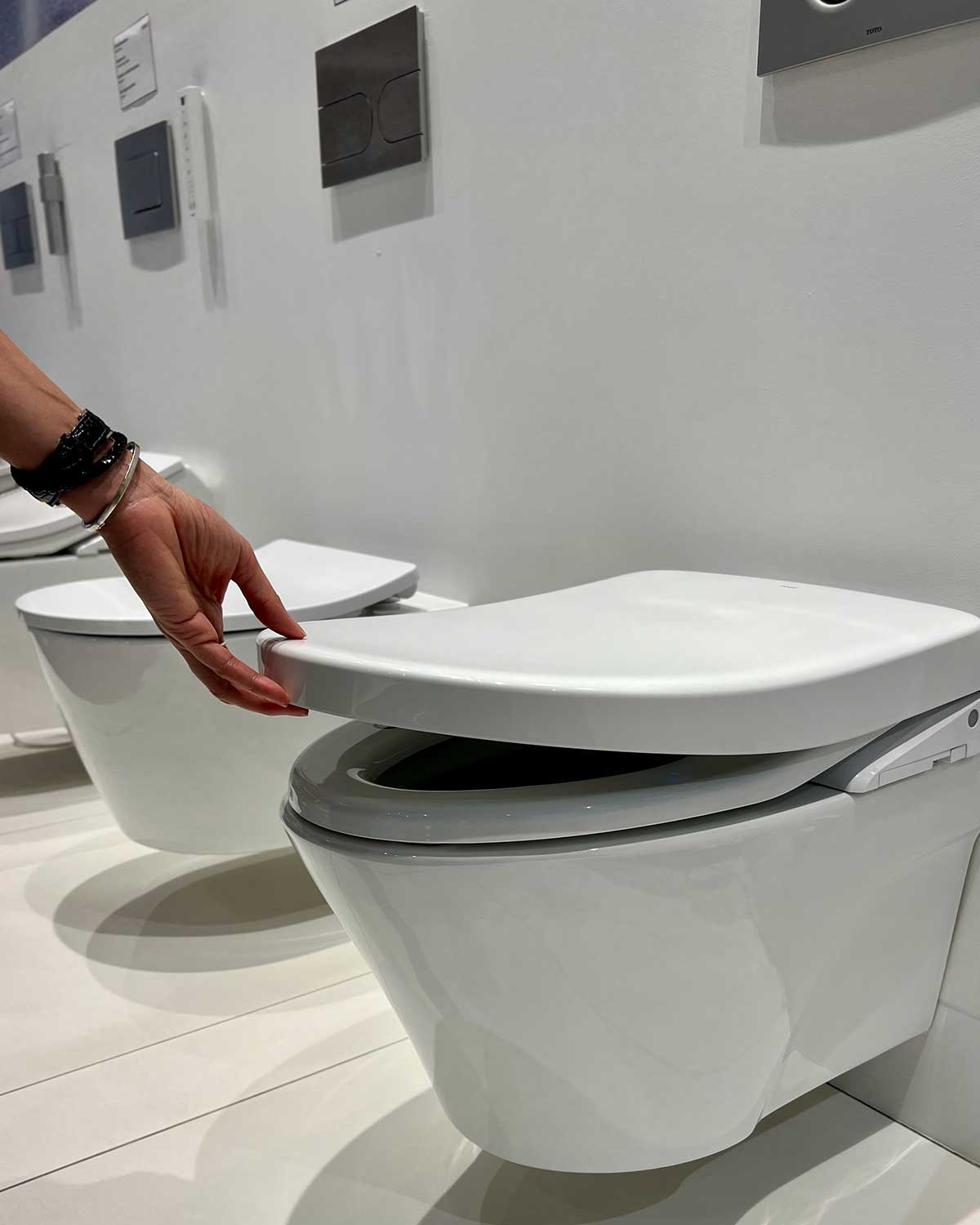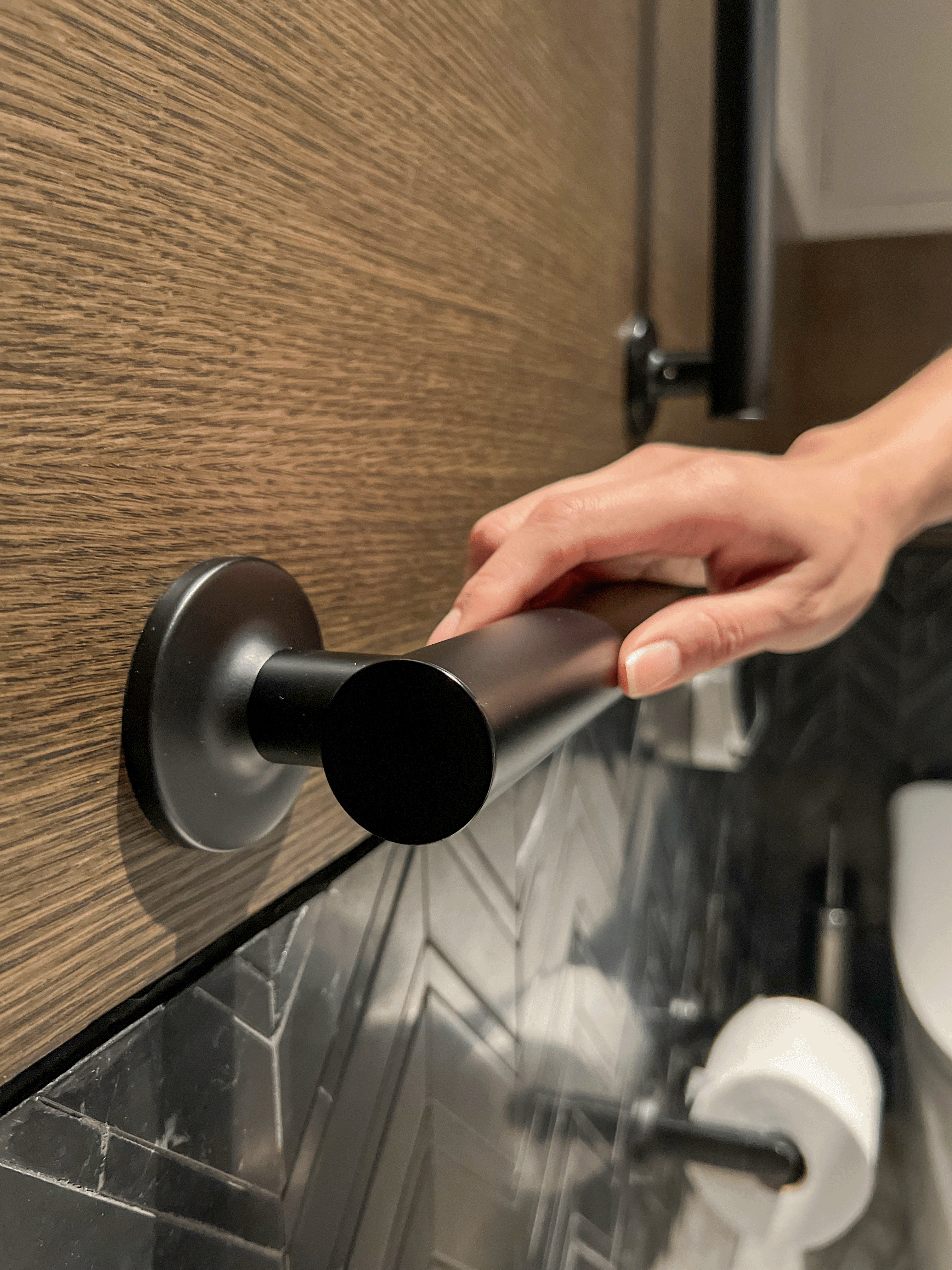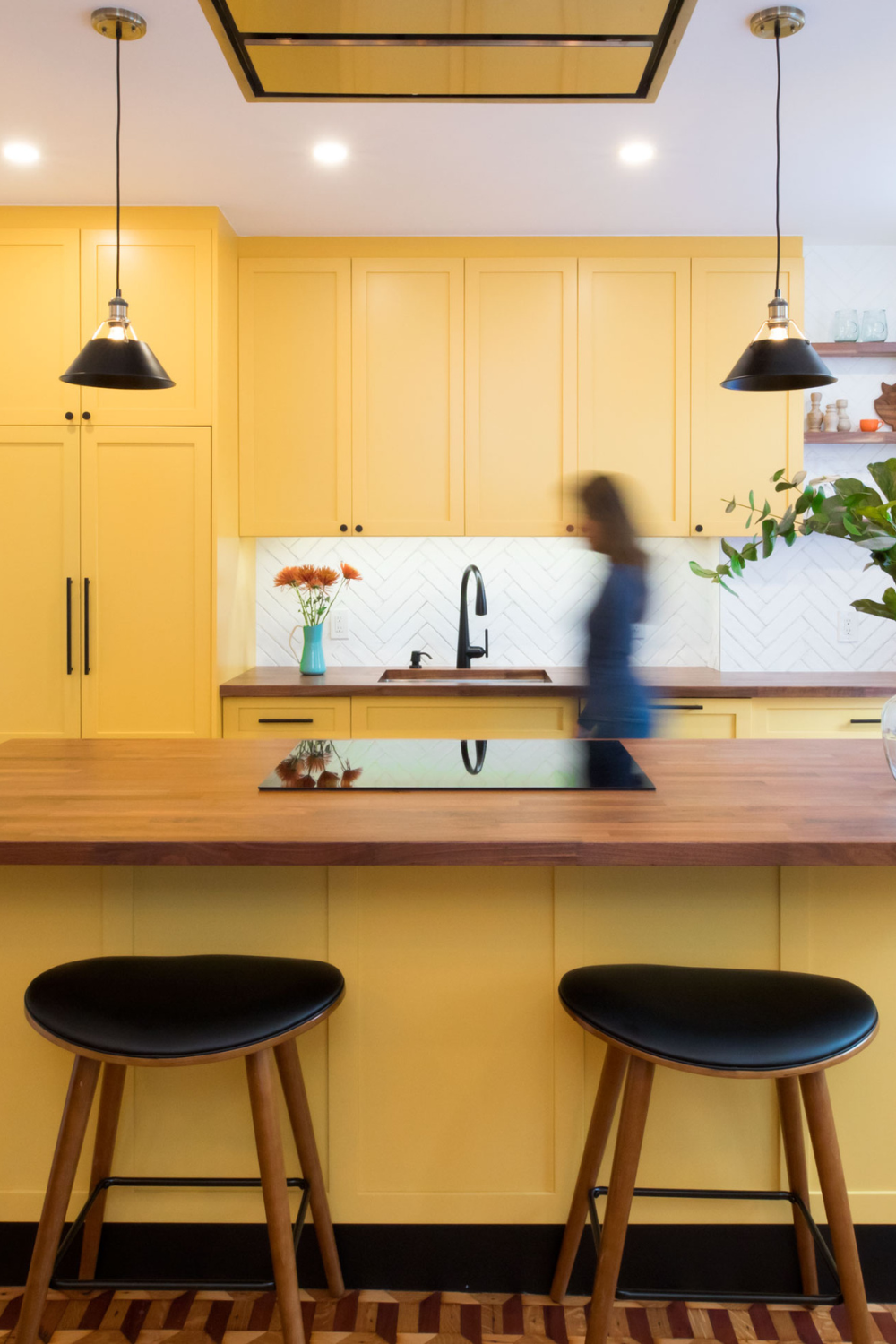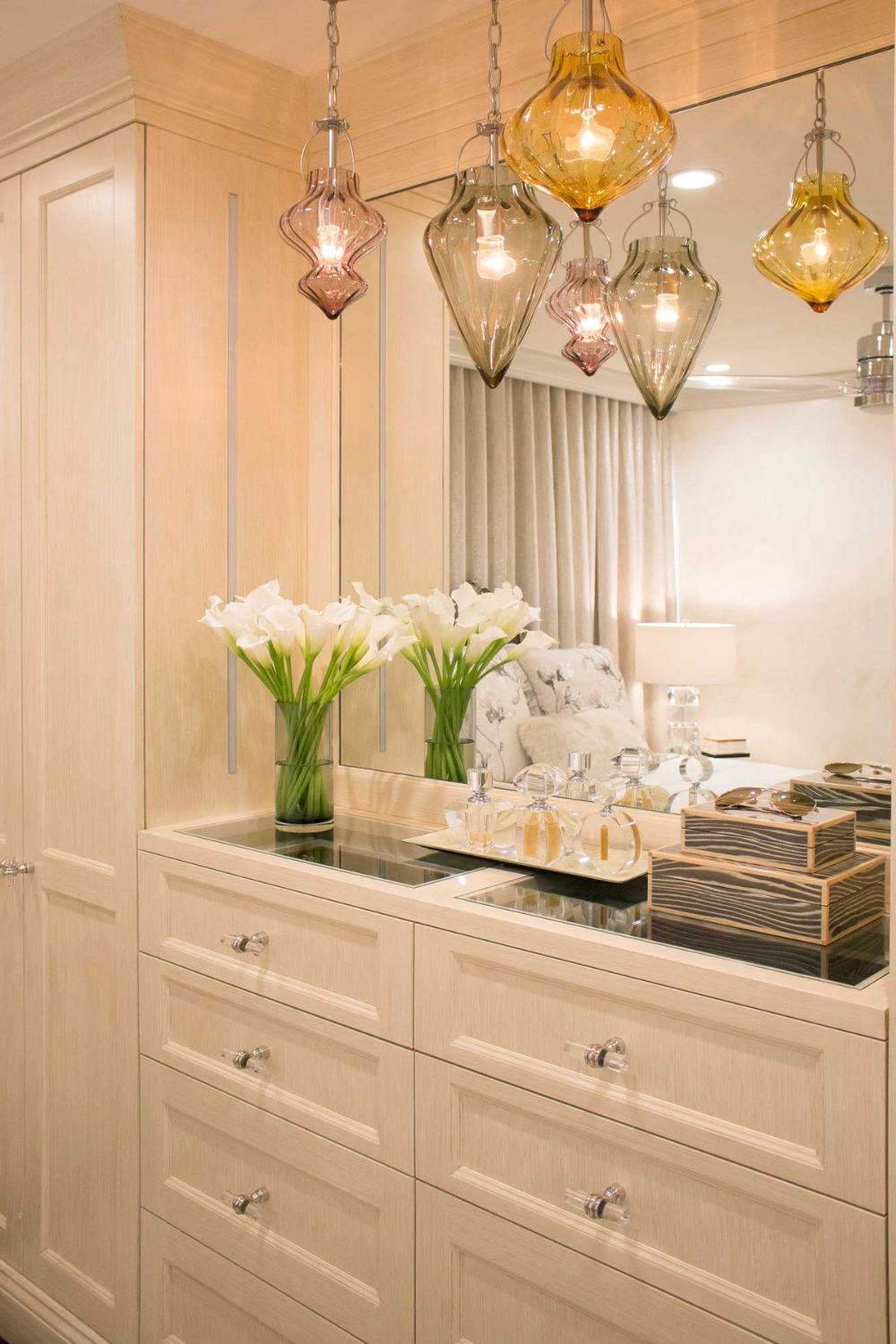In our last two posts I talked about cost and time investment, and how to get past the mental and emotional hurdles we create for ourselves with these two subjects. But not all hurdles are mental. Time is an entity that you can manipulate to some extent through sheer force of will (I mean, within reason), but money is a different sort of beast. I would not advocate for anyone to run themselves deep into debt in order to realize their design dreams.
Reducing scope
Let’s say you absolutely need your renovation to stay under a certain financial cap, and the estimates are coming back significantly higher than that number. Is there a way to reduce scope that won’t water things down to something unsatisfying? Actually, yes. I have a client who has done several rooms in her home, and, in order to keep costs reasonable, we have taken a practical approach to our pacing, by designing in stages. I recommended that we start with her basement, since her kids spend a lot of time there. That was a relatively simple job, but it changed the flow of her family’s daily use in such a way that we were then able to take some time planning her living room (the grown up space).
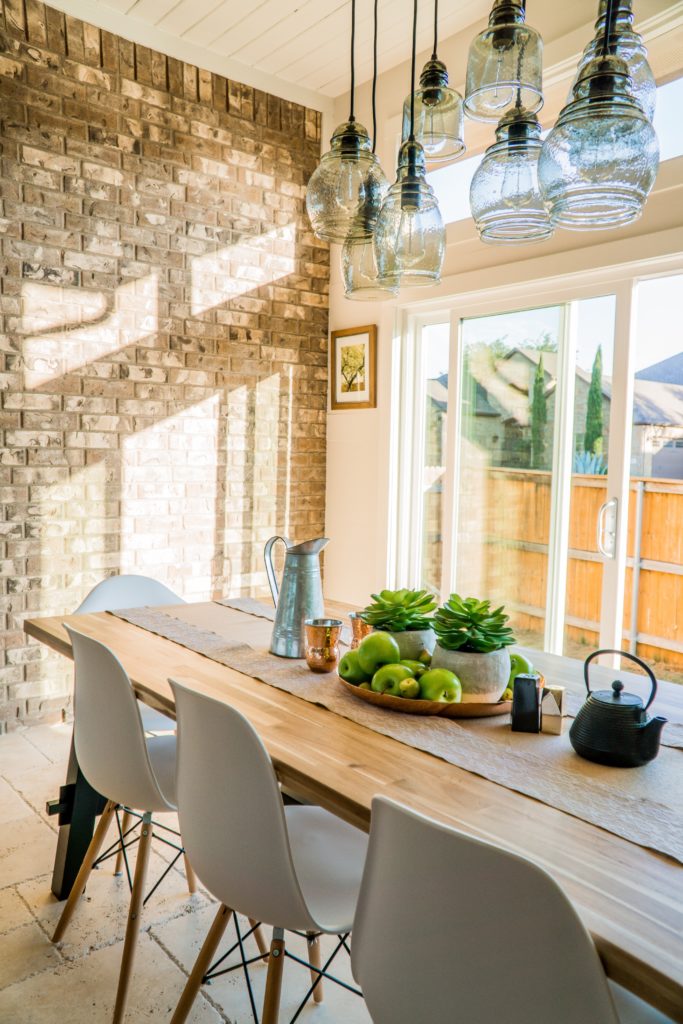
Create a space plan to accommodate future updates
Perhaps you want your dream kitchen to have two dishwashers and an extra sink in the island. But the dishwasher you want is high-end, and then you see the plumber’s estimate for the extra sink is two to three times what you had expected. Do you cut them from the plan? Not necessarily. If you can’t justify the increased cost right now, consider keeping room for these two items in your design, knowing that they can still be added later, without major redos.
Or maybe you want to do your whole house, but you realize that your planned investment will really only cover about half that much. Choose the most crucial rooms to focus your resources, and do those rooms to perfection. Then pause, save up and do the other parts when you’re ready. Scope reduction does not have to mean a watered down plan.
Finding a way to have it all
If you’re a fan of Grand Designs, a program out of the UK that I enjoy, you will have seen people who quit their jobs to project manage, taught themselves how to do everything on Youtube, and called in every favor they had from friends and family. On the other end of the spectrum, you’ll see people whose goals are unfocused, or whose plans and budgets are wildly out of sync. In between those extremes are those who found ways to get the most important things done, and within reasonable time and money parameters.
You don’t absolutely have to hire professionals for everything, but unless you have time to do this yourself, a professional will help you to identify your wishes, and they bring a lifetime of experience to the table in making your wishes a reality. It is up to you how much you want to involve yourself personally in the day to day. If saving money is key, then you may choose to take over as many of the tasks as you can manage. If making your life easier is your priority, then it will be in your best interest to hire professionals for as much as possible.
Try to get to a place where you feel able to give yourself this life-changing gift, and then you will be free to embrace issues like timeline and expenditure as simply part of the process rather than emotional hurdles. And you may realize that these do not need to be such deterrents after all.

As an Amazon Associate, this site may contains affiliate links and I can earn from qualifying purchases at no cost to you. View disclosure for more information.
I'm Claudia. Welcome to my Interior Design blog! I'm thrilled to share my expertise and passion with you. With over 20 years in the industry, I'm a Certified Interior Designer, holding an NCIDQ Certification, and an educator. Interior Design isn't just my career—it's my passion. Dive in to explore more about me. Click here to learn more!
Hi Friend!
Stay inspired—join our design community by subscribing to the blog today.
subscribe now
Other Posts You Might Like
©2025 Claudia Giselle Design | Interior Designer | Brooklyn, New York
Legal
BACK TO TOP
Testimonials
718-255-5949
Press
office@claudiagiselle.com
MENU
We create thoughtful, personalized interiors for those who value quality and beauty in every detail — serving NYC, Manhattan, Brooklyn, Long Island, the Hamptons, and the Hudson Valley (including Westchester and Dutchess County) & Beyond.
Timeless Classicism with a
Bold Touch of Elegance
Home
Services
Process
About
Blog
Portfolio
Scheudule a Consultation
GET IN TOUCH
Contact
